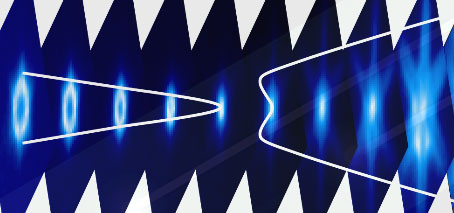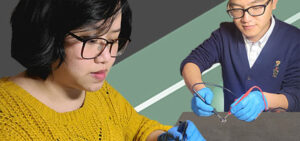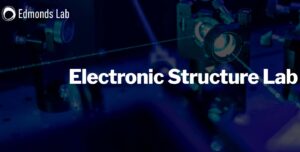A Meet FLEET innovation-and-industry event poster
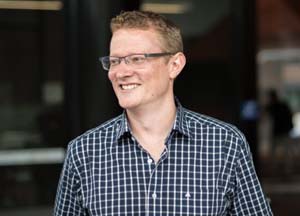
Mark Edmonds, ARC Future Fellow, Monash University
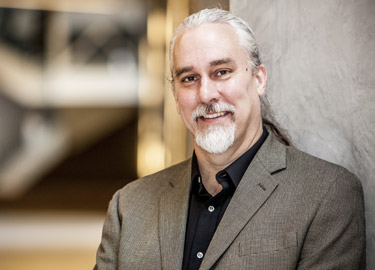
Michael Fuhrer, FLEET Director, Monash University
The Challenge
Scientists are continually searching for ways to increase computing power while reducing power consumption. A big step forward would be finding materials that conduct electrons with near-zero resistance at high-temperature and with all their spins aligned in one direction.
The Solution
Our solution is a layered “sandwich” structure comprising of a thin topological insulator that is placed between two single magnetic layers. This creates a bandgap, and within the bandgap the spin-aligned electrons travel along the edges of the material. The new system aims for a five-fold increase in the temperature at which zero-resistance currents are supported.
Key Benefits
- Demonstrated Bandgap
- High Magnetic Transition Temperature
- The structure can be made using growth techniques compatible with existing CMOS.
Development Stage
- Technology Concept completed
- In the process of seeking strategic partners to develop the concept.
Brief Description & Differentiation
The aim of this research is to ultimately achieve zero-resistance spin-polarized edge currents at or near room temperature. In other technologies, such zero-resistance edge currents are limited to cryogenic temperatures of just several Kelvin (or just above absolute zero). We envision a magnetic topological insulator ‘sandwich’ material that possesses a bandgap and magnetic transition temperature (where all the magnetic spins are aligned) large enough to support near- room-temperature operation.
Intellectual Property
N/A
Key Publications
- Li, Q et al, Large magnetic gap in a designer ferromagnet-topological insulator-ferromagnet heterostructure, Advanced Materials 2022, 2107520
- Trang, C. X et al, Crossover from 2D ferromagnetic insulator to wide band gap quantum anomalous Hall insulator in ultrathin MnBi2Te4, ACS Nano 2021, 15 (8), 13444–13452.
- Bhattacharyya, S. et al, Recent progress in proximity coupling of magnetism to topological insulators, Advanced Materials 2021,33 (33), 2007795
More information
- Contact Dr Mark Edmonds, Monash mark.edmonds@monash.edu
- Contact Prof Michael Fuhrer, Monash michael.fuhrer@monash.edu
- Visit the Edmonds Lab edmonds-research.com

